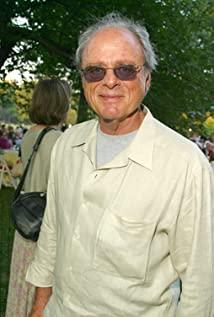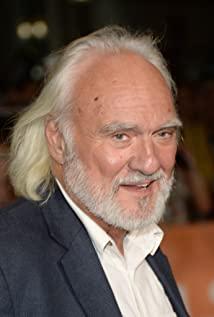Woody Allen made this clear in "The Other Woman."
When she wakes up in the morning, Marianne is a confident woman. The basis for her self-affirmation comes from the success of her career (as a philosophy professor in a good women’s college, writing a book) and family harmony (with family photos in the room as evidence) . These are based on various facts, such as location, environment, occupation, social class, job content, smiles in photos.
But why did Marian's self-affirmation take a turn for the worse within a few days, from self-confidence to doubt, loss, fear, loss, and frustration?
The reason was that she had missed the conversation between a woman next door and a psychologist. The narration of "another woman" seemed to awaken the person in her dream. The anxiety and doubts buried in "self-affirmation" in Marianne's subconscious were aroused. Through observation and reflection, she found that she was actually in the crises of interpersonal relationships. These crises were only bewildered and concealed by various apparent facts.
The film clearly strips away this layer of interpersonal crisis.
The first level is the crisis of Marianne and his brother Paul. The situation in Marianne's eyes is that Paul has been very close to herself since childhood, and their relationship is as close as ever. But Paul's wife told Marian that Paul hated her.
The second level is the crisis between Marianne and her husband Ken. The situation in Marianne's eyes is that they are willing to have a successful career and are respected, and their marriage is based on the communication of the mind and the passion of the body. The reality is that their relationship was built on a bad foundation at the beginning. Ken concealed the fact that she was married from her, so Marianne became a third party without knowing it. Although she is a morally "setting example" for students, in fact she does not completely conform to it. Social ethics. And Ken is an indifferent and selfish person. They don't have sex anymore, and they do things according to the rules if they happen occasionally. Ken refuses to talk about relationship issues, and Marianne can't enter his inner world at all.
The third level is the crisis between Marianne and her former close friend Claire. Marianne thinks they have always been best friends, but they have been neglected in recent years. The actual situation is that Claire believes that Marianne seduced her former lover without even realizing it, thus ruining her life's love. When Claire told Marianne, Marianne was so surprised that her memory seemed to exist in another space, incompatible with the memories of everyone around her. But if you understand Marianne’s personality, it’s not difficult to understand that her purpose of "seduce" the other party is to reject the other party. She needs to extract the basis for self-affirmation from various facts. She is very selfish and selfish. In a situation where I can't realize how selfish I am.
In addition to these three major crises, Woody Allen provided three more keys to help Marianne conduct self-reflection.
The first key is the "other woman" next door. The setting of this role is very vague. In fact, we don’t know who she is. We only know that she is a desperate pregnant woman, but her narration and Marianne’s experience are very Similarly, the locations where she and Marianne appear together are near the theater and in the antique shop. These two scenes with strong symbolic meaning seem to imply that "the other woman" is Marianne herself. Of course, we don’t have to make an inevitable explanation for the film. But at least this is the main meaning of her role. She indirectly helped Marianne gradually reflect on her inner world, her choices in life, and her attitude towards her family. One of her words that hit Marian the most was: "I hope that when I reach her age, I won't be like her." At the end of the film, "the other woman" left and no longer appeared, which foretells Marianne is regaining herself, and she doesn't need her "clone" to help her unlock her heart.
The second key is Larry, a man that Marianne could once choose. He is a man who truly loves her and is passionate about her. And he also understood the essence of Ken. He was just a selfish and indifferent guy. Marianne had a passion for him for an instant, but at that time she was about to marry Ken. Her ethics did not allow her to go back and talk to Ken’s friends. in love. She tried to persuade Larry, but in fact she persuaded herself to marry Ken happily. And this also made her miss an opportunity to know herself again. At the end of the film, she read the novel written by Larry based on her, and once again discovered facts that were completely different from her own memory. Larry and Claire are both people who really know Marianne. Larry’s understanding comes from love. Claire's understanding comes from hate, and Marianne needs to understand herself through others' understanding of her.
The third key is Marianne's father, mother, ex-husband, stepdaughter, students and other important figures in the network of relationships. Marianne’s father is the main source of her character formation. He is an accomplished historian, but he is harsh, indifferent, and despise interpersonal relationships in pursuit of career. In the end, he was very unhappy and transferred this unhappiness to treatment. In the family’s attitude, in the words of Marianne’s younger brother Paul, Marianne and his father live in their own world and use their own narrow standards to demand anyone. Marianne’s mother is just the opposite. She did not appear in the film because she passed away a long time ago. But from various descriptions, we know that she is a woman who is passionate about life, loves art, and is rich in emotion. She was influenced by her from childhood to adolescence, and she was very interested in poetry and painting, but it is likely that she died later, so Marian's enthusiasm also died. The passion of becoming an artist turned into a rational philosopher, and it was too rational. , It becomes cold.
The flashback to Marianne’s ex-husband reflects the culmination of Marianne’s selfishness. She killed her children for her career and did not discuss with her ex-husband. After 15 years of divorce, her ex-husband committed suicide, and Marianne refused to consider him suicide, of course because she did not. Willing to accept such an explanation.
Marianne’s stepdaughter and students showed that young people follow her as an example. This is a fact and irony. The stepdaughter Laura thinks Marianne is a role model, but it is also very judgemental. Marianne’s students think she has influenced her life, but In fact, this evaluation can only make Marianne embarrassed, because her affirmation of herself has collapsed, because she realizes how disharmonious her interpersonal relationship is, she has lost friendship, affection, love, or is close to the edge of loss , But fortunately she can introspect, and she is sensitive enough to be aware of the problem.
At the end of the film, Marianne began to make adjustments and took the initiative to show her brother’s good intentions, and found out that her husband broke up with Larry after cheating. Although she could not start again with Larry, she might not be able to reconcile with Claire, and it would be impossible to have another child (although she is now Regret), which means that she has missed a lot of possibilities, but realizes that a more true self is the most important part, at least as "the other woman" said, 50 years old is not too old, Marianne does not need Spend the rest of your life in self-deception.
Woody Allen's irony of American middle-class intellectuals is very typical in this film. The contradiction between appearance and heart, the deviation of facts and spirit, the fault of external evaluation and self-cognition, the realization of social value and the rupture of interpersonal relationships are all very typical in this film. It is the problems that Marianne represents.
Marianne asked her husband Ken: "Why do we go out every night to eat with friends you don't even like, and never get alone? Is it because we have nothing to say?" When we are mentally empty, we can only use all kinds of Affairs to cover up, when we are busy with all kinds of seemingly meaningful affairs, we cannot face the reality of spiritual emptiness.
When Marianne was introspecting herself, she stopped working and just wandered around the city aimlessly and cleared her thoughts. This is Woody Allen's answer to eliminating the spiritual emptiness in city life, that is, letting go of what seems meaningful. Work, do something meaningless, and then start thinking.
View more about Another Woman reviews











